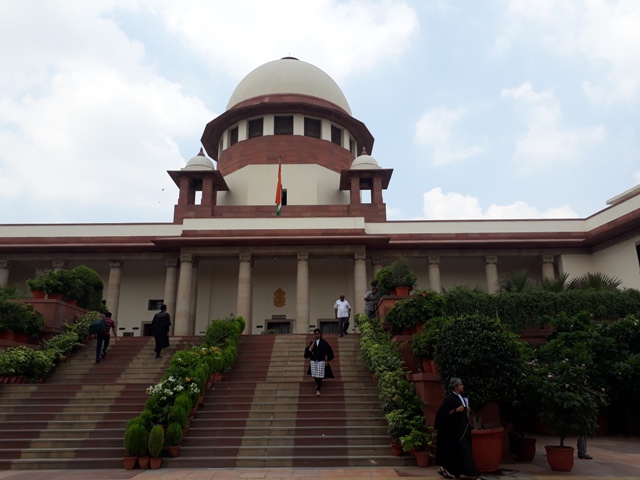Pegasus snooping row: SC refers to 'Orwellian concern'; says effort to uphold rule of law without being consumed in political rhetoric

- Country:
- India
The Supreme Court, which appointed an expert committee to inquire into Pegasus snooping row, Wednesday said its effort is to uphold the Constitutional aspirations and rule of law without being consumed in the ''political rhetoric'' even as it observed that the petitions filed in the matter raised Orwellian concern.
Quoting English novelist George Orwell, a bench headed by Chief Justice N V Ramana said, ''If you want to keep a secret, you must also hide it from yourself.'' Petitions seeking an independent probe into alleged snooping row raise an Orwellian concern, about the alleged possibility of utilizing modern technology to hear what you hear, see what you see, and to know what you do, the apex court said.
''Orwellian'' refers to a dystopian, totalitarian state which is destructive to the welfare of a free and open society.
''In this context, this Court is called upon to examine an allegation of the use of such a technology, its utility, need, and alleged abuse. We make it clear that our effort is to uphold the constitutional aspirations and rule of law, without allowing ourselves to be consumed in the political rhetoric.
''This Court has always been conscious of not entering the political thicket. However, at the same time, it has never cowered from protecting all from the abuses of fundamental rights,'' said the bench, also comprising Justices Surya Kant and Hima Kohli.
The further said: ''We live in the era of an information revolution, where the entire lives of individuals are stored in the cloud or a digital dossier. We must recognize that while technology is a useful tool for improving the lives of the people, at the same time, it can also be used to breach that sacred private space of an individual.
''Members of a civilized democratic society have a reasonable expectation of privacy. Privacy is not the singular concern of journalists or social activists. Every citizen of India ought to be protected against violations of privacy. It is this expectation which enables us to exercise our choices, liberties, and freedom''.
The top court said historically, privacy rights have been 'property-centric' rather than people-centric and this approach was seen in both USA as well as England.
''In 1604, in the historical Semayne's case, it was famously held that 'every man's house is his castle. This marked the beginning of the development of the law protecting people against unlawful warrants and searches,'' the bench said.
Quoting British statesman William Pitt, the Earl of Chatham, the bench said: “The poorest man may in his cottage bid defiance to all the force of the Crown. It may be frail — its roof may shake — the wind may blow through it — the storm may enter, the rain may enter — but the King of England cannot enter! — all his force dares not cross the threshold of the ruined tenement!” Referring to 'The Right to Privacy' article written by Samuel Warren and Louis Brandeis in 1890, the bench said: ''Recent inventions and business methods call attention to the next step which must be taken for the protection of the person, and for securing to the individual what Judge Cooley calls the right “to be let alone.” ...numerous mechanical devices threaten to make good the prediction that “what is whispered in the closet shall be proclaimed from the housetops”.
The apex court said however that unlike the 'property centric' origin of privacy rights in England and under the Fourth Amendment in the Constitution of the United States of America, in India, privacy rights may be traced to the 'right to life enshrined under Article 21 of the Constitution.
''When this Court expounded on the meaning of “life” under Article 21, it did not restrict the same in a pedantic manner. An expanded meaning has been given to the right to life in India, which accepts that “life” does not refer to mere animal existence but encapsulates a certain assured quality,'' the bench said.
(This story has not been edited by Devdiscourse staff and is auto-generated from a syndicated feed.)










